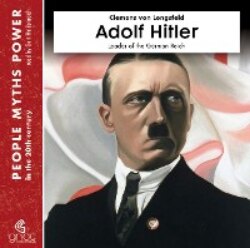Читать книгу Adolf Hitler - Clemens von Lengsfeld - Страница 12
На сайте Литреса книга снята с продажи.
ОглавлениеThe Versailles Treaty
On 11 November 1918 the war was at an end for the German Empire. In the humiliating ceasefire negations defeat was sealed for the central powers of Austria and Germany.
After the First World War the dead were counted in millions: Germany 2 million, France 1.3 million, Austria-Hungary 1.5 million, Russia 1.8 million, Great Britain 0.75 million32.
The continent had bled dry. People were traumatised. But in Germany the hate would continue.
“Not out of the ideals of the French revolution: freedom, equality and brotherhood, but the ideals of Frederick the Great: fidelity, order and justice enabled Prussia and Germany to grow in strength to stand up victoriously to a whole world of enemies in this war. It is only because our enemies know this that they are demanding the extermination of the Prussian spirit within the German people as their supreme goal in the war. May the Lord God grant that they will never succeed in this. How our people is that’s how I want to stay: loyal, strong, god-fearing, peace-loving and ready for active service. Only this way will it be regarded with respect, even if not loved, and assume its place in the sun amongst the peoples of the Earth,“33 according to the President of the Prussian parliament, Hans Count von Schwerin-Löwitz, on 8 March 1918.
The peace treaty, which was perceived to be unjust, the “shameful dictat of Versailles” would unite all layers of society in a deep resentment, just like the blind enthusiasm for war had done in 1914. One person would ensure that this hate became the doctrine of the state. A person, who as a simple corporal had been temporarily blinded after an British gas attack and therefore had to spend a few weeks in a military hospital in Pasewalk in Pomerania. In the interminable ranks of the injured, maimed and dead he would not have been worth a mention. Neither for what he had done, nor for what he had omitted to do. However, his name was Adolf Hitler. Nobody would then have guessed that this somewhat eccentric and introverted man of simple origins would go on to cause a worldwide conflagration, which in Europe alone cost 40 million people their lives.
This guiding spirit – in a few years he would be a role model for millions – in Munich initially stood on the “wrong” side, namely that of the communists. A newspaper photograph34 shows him together with other soldier councillors at the funeral of Kurt Eisner. His uniform cap drawn down deep over his face, the uniform greatcoat wide and baggy, but there was the dark moustache, later to become his identifying feature: this is the Reichswehr soldier Adolf Hitler. In spring 1919 he even gets himself elected to the reserve battalion council of the demobilisation battalion in his barracks during the socialist Munich Soviet Republic (Räterepublik). As he had already done as a soldier at the front, he also pursued the tactic of manoeuvring and conducting himself as inconspicuously as possible in the troubled times of the Bavarian Soviet Republic. After its violent defeat in May 1919, Hitler would continue with the opportunism tried and tested on the Front and denounce representatives from the battalion council in front of a summary court martial of the Munich Reichswehr administration in order to save his own neck. As an ambitious politician of a right-wing party in the future, he would keep quiet about his collaboration with the leftist soldier councils. Only a blurred black and white photograph today still provides testimony of his “aberration”.
